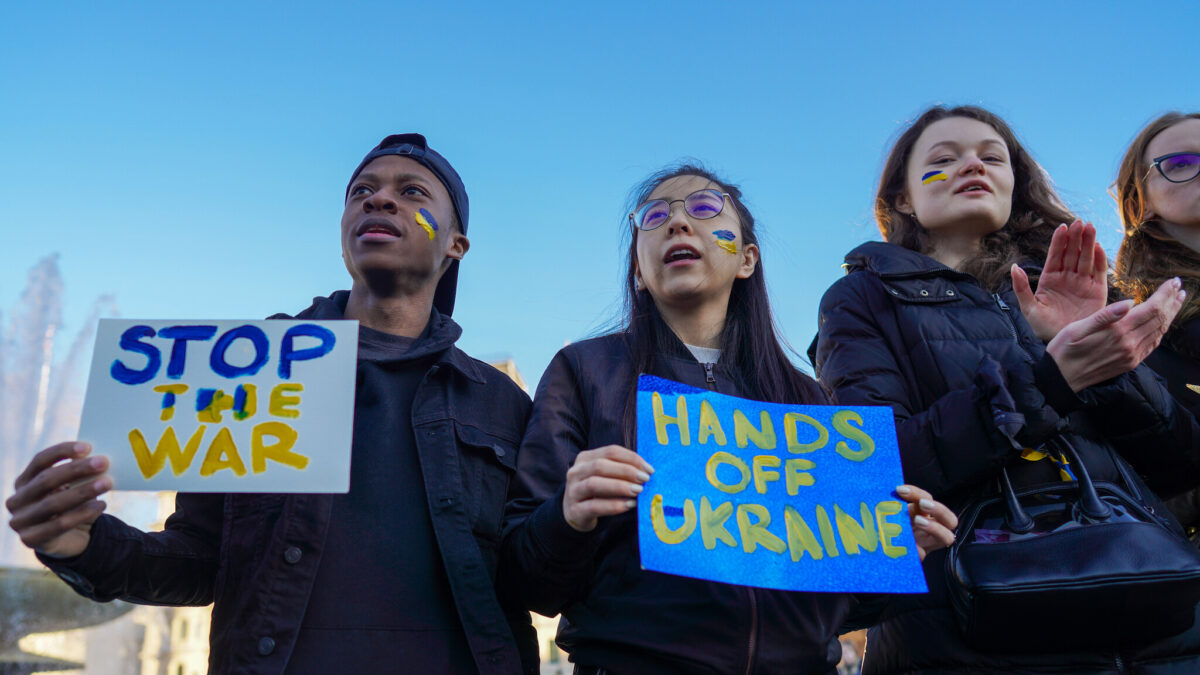Aid not loans: the UK must push to urgently drop the Ukrainian debt
A crippling debt burden means that Ukraine is fighting with one hand tied behind its back.
USE THIS QUICK ONLINE TOOL TO ASK YOUR MP TO CANCEL THE UKRAINIAN DEBT

There is for the most part a consensus in UK politics that the Russian invasion is wrong, that the troops should be immediately withdrawn, and Ukraine needs international support. But as the country faces a growing humanitarian crisis and continues to defy the odds in its defensive military campaign, words of solidarity are not being matched by the simple, practical step that Western powers could take: to cancel the Ukrainian national debt.
Yuliya Yurchenko is a political economist at Greenwich University in London. In her book, Ukraine and the Empire of Capital: From Marketisation to Armed Conflict, she explains how Russian military intervention in 2014 and after increased Ukraine’s debt problem, which was then exploited by creditors that demanded further privatisation and deregulation (especially in the energy market). Through its emergency lending programme for bankrupt states the International Monetary Fund (IMF) played a key role. The remaining 3.5k state owned enterprises were all earmarked for sale. The anti-corruption reforms that the IMF also insisted on tended to focus exclusively on the public sector, ignoring the role that privatisation and financial liberalisation play in creating avenues for kleptocratic activity.
In recent years, the West has seen a paradigm change in economic thinking. Many countries have moved away from ‘free market’ prescriptions towards a focus on managed trade and greater state intervention. But this hasn’t altered how they approach financial assistance in the big global institutions. Indebted countries that need support are still having the ‘old’ economics imposed on them through World Bank and IMF debt restructuring programmes.
Philip Alston, the UN special rapporteur on extreme poverty and human rights, noted in 2018 that although the IMF “claims to have introduced major changes to some of its… [traditional] policies, the emphasis on the privatization of a range of public sector enterprises and activities continues to feature prominently” in its core agenda.
Now, Ukraine is facing an invasion by its much more powerful neighbour. Yet, there is still hardly any public debate on the need to urgently relieve the country’s huge debt burden.
As Eliot Dolan Evans has argued at Open Democracy, the issues at stake here are simple, but provide a stark illustration of just how broken and unjust the global financial system is:
“As the humanitarian crisis in Ukraine deepens and the scale of the destruction wrought by Russian bombs becomes apparent, the international financial institutions must forgive Ukraine’s debt. Ukrainians have already begun to demand that the crippling levels of debt be wiped, as a material, significant, and necessary sign of real solidarity from the international community.”
The UK’s economic support does not match its political rhetoric
Many Conservative MPs have rallied to the Ukrainian cause and discussed their opposition to the Russian invasion in terms that invoke the conflict with Nazi Germany. Regardless of whether this parallel is helpful, it is notable that nothing like the kind of economic support that Britain received in World War 2 has been offered to the Ukrainian government today.
The United States provided Britain and its other allies with around a billion dollars per month through the Lend-Lease programme, contributing about 10% of the UK’s food and armaments use. Added to this, was the aid that Britain demanded from its empire to support the war effort. Canada famously provided Britain with the ‘one billion dollar gift’, a huge sum for a relatively small economy, and wealth extraction from colonial possessions like India, through the use of ‘Home Charges’ and payments for ‘security’, increased sharply prior to, and during, the war.
If Conservative MPs are serious about the comparison with World War 2, then the least they could do is recognise that Ukraine needs rapid economic assistance. They should use their influence to push for policy change – including significant economic financing, as well as humanitarian aid, to the Ukrainian government.
Western states have a voting majority in the IMF – and the combined weight of the UK and US alone together comprise over a fifth of the body’s votes. So, it is well within the power of the West to immediately cancel a large part of Ukraine’s debt in the face of these extraordinary events.
USE THIS QUICK ONLINE TOOL TO ASK YOUR MP TO CANCEL THE UKRAINIAN DEBT
March 7, 2022
Brexit Spotlight is run by Another Europe Is Possible. You can support this work by joining us today. The website is a resource to encourage debate and discussion. Published opinions do not necessarily represent those of Another Europe.





